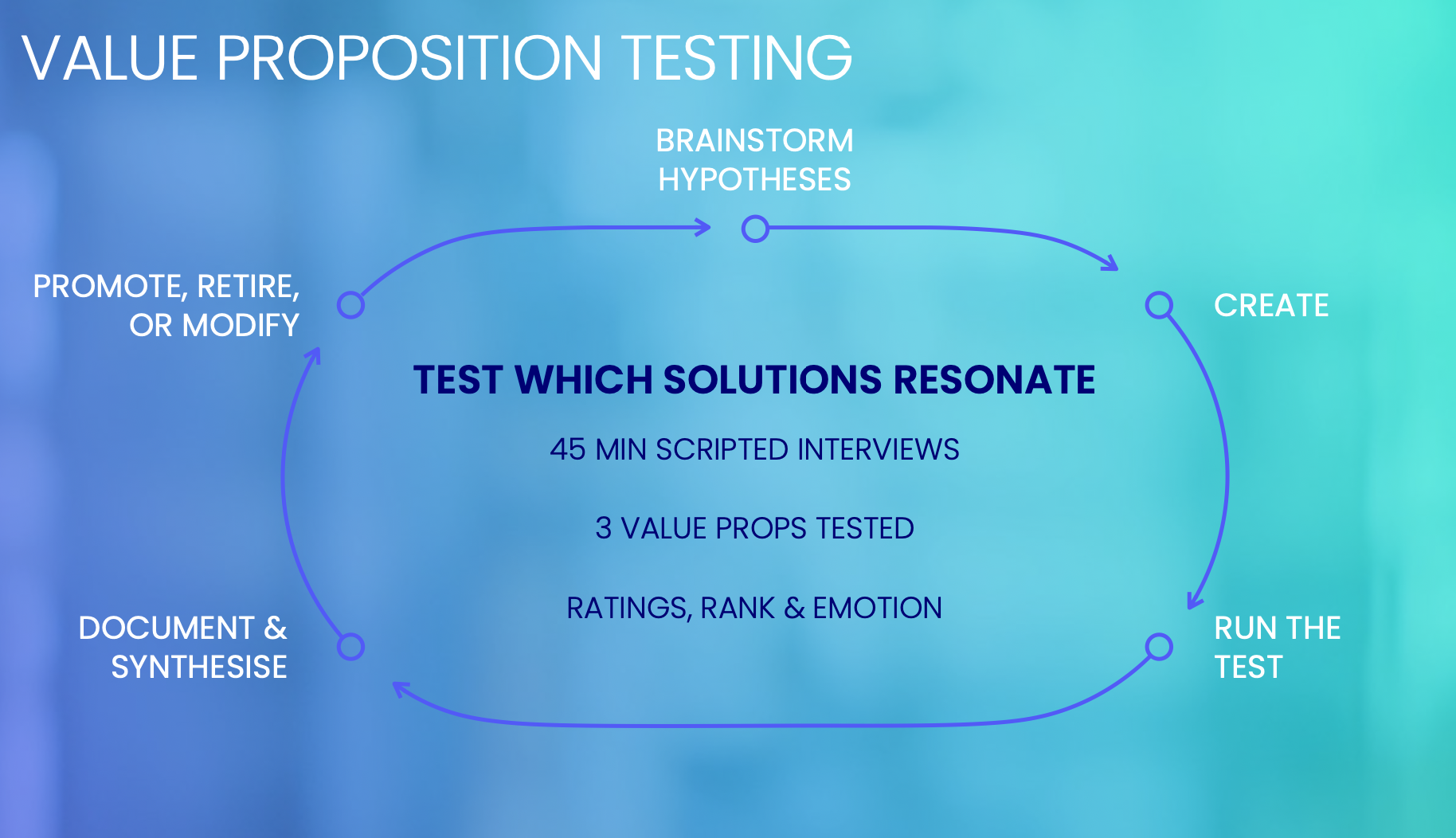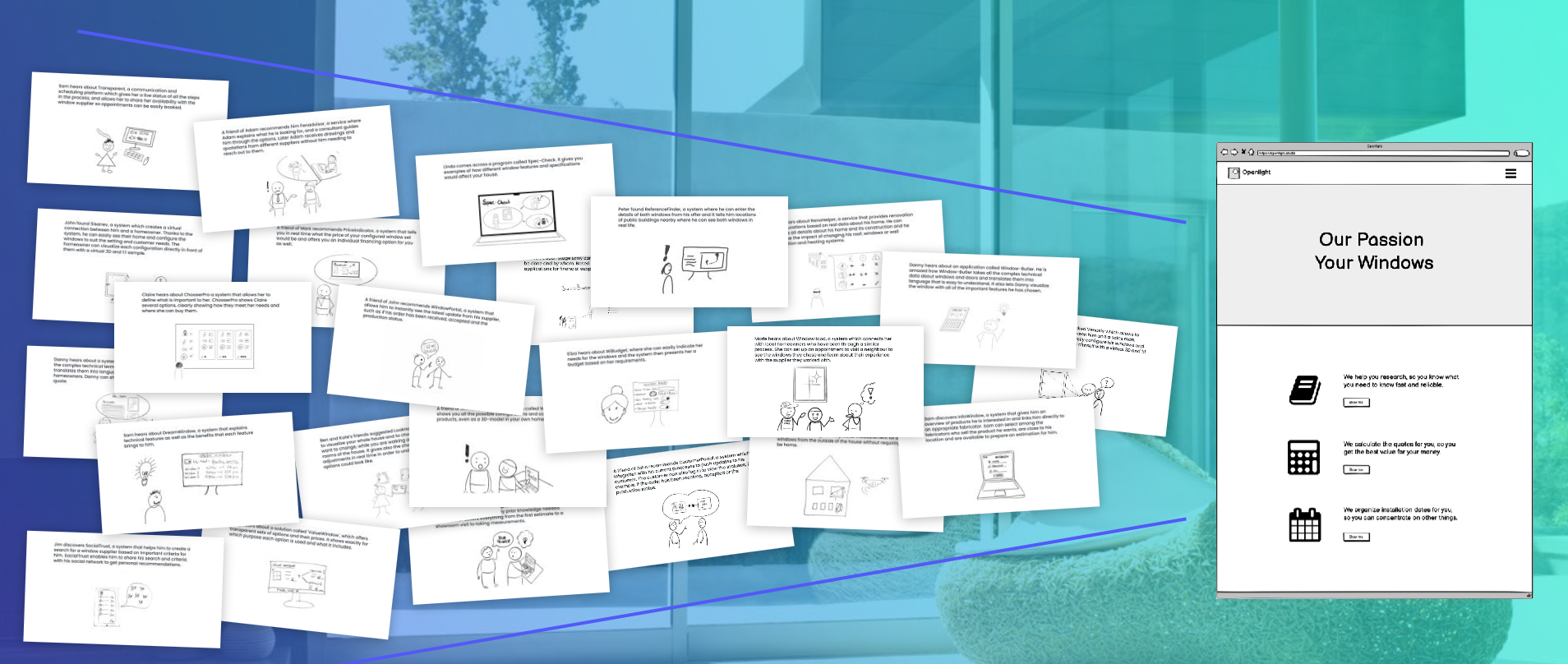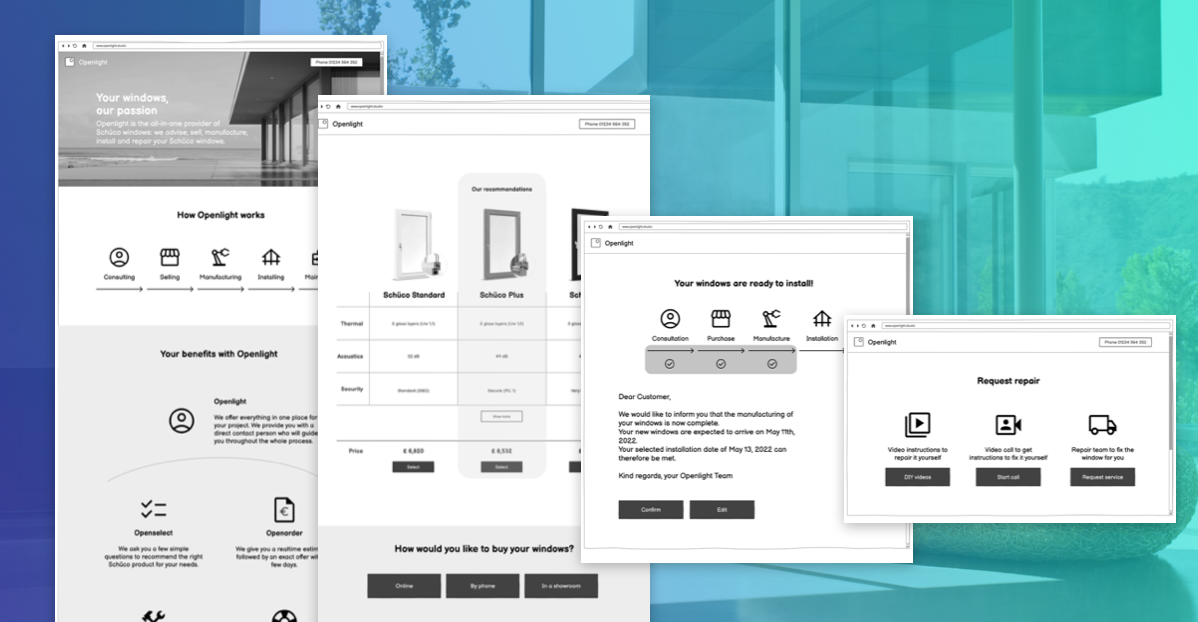🏠 Making home renovation easier with direct-to-consumer (DTC) digital tools
Helping homeowners plan and buy windows and doors with less hassle and more confidence
Note: To respect client confidentiality, some project specifics have been intentionally left out.
Project Summary
Client: Leading window and door manufacturer, European market
Timeline: 5 months (2022)
Industry: Manufacturing | Direct-to-Consumer (DTC) | Venture Building
My Role: Lead CX Researcher & Strategist
Team:
Client-side: 8 Domain Experts (Product, Sales, Marketing, and IT leads)
Venture Studio Team: Entrepreneur-in-Residence, UX Designer, Business & Operations Specialists
Expertise: Customer Research • Venture Building • Service Design • Innovation Strategy • Digital Ecosystem Design
Challenge
With rising consumer expectations and growing disruption from emerging direct-to-consumer (DTC) competitors, a well-established European manufacturer recognized the urgency to evolve. Traditionally strong in B2B channels, they aimed to directly engage consumers -- homeowners, property investors, and renovation service providers -- through a digital ecosystem that simplifies one of the most complex home upgrade decisions: replacing windows, doors, and façades.
The goal: Deliver a more trusted, guided, and integrated renovation experience, while growing brand preference and supporting existing partners.
Approach
We took a staged venture-building approach to navigate risk, align stakeholders, and test solutions in four markets: Germany, France, Italy, and the UK. At each step, we aimed to:
Deepen customer engagement by addressing friction points across the customer journey
Empower end-users with tools, expert guidance, and tailored recommendations
Build a scalable service-led DTC model that complements B2B channels rather than competing with them
Validate new value propositions and service concepts through live market feedback
Ensure long-term business viability through robust modeling and planning
Phase 1: Discovery & Insight Gathering
We conducted 100+ qualitative and quantitative interviews with consumers (homeowners), service providers, and internal teams to uncover pain points and opportunity areas across both digital and offline touchpoints.
Phase 2: Concept & Value Proposition Development
Co-created 20+ digital service concepts, from guided configurators to installer coordination tools. These were iteratively tested and refined with 45+ homeowners and service providers across the four focus markets.
Phase 3: Prototyping & Pilot Testing
Built and tested low-fidelity prototypes with target users to refine usability and operational fit.
This phase also allowed us to gather early pilot customers and assess real market interest, helping shape the venture’s direction and reduce risk.
Phase 4: Business Modeling & Roadmap
Defined a phased go-to-market and operational strategy, balancing direct consumer engagement with existing sales channels.
Developed financial models, acquisition and retention forecasts, and a roadmap to scale -- derisking future investment through clear business logic and execution plans.
Out of respect for client confidentiality, process materials are not shown. What’s shared here represents high-level outcomes and strategic direction.
Synthesizing discovery insights into a target customer profile and high-level emotional journey for the homeowner segment.
Developing value propositions through testing and iteration, followed by prototypes reflecting validated customer needs.
Outcomes & Impact
Product-market fit was validated through 170+ interviews across homeowners, developers, and service providers, grounding the solution in real-world needs
Consumers responded positively to the clarity, guidance, and personalization -- early validation sessions revealed increased trust, smoother decision-making, and stronger engagement throughout the journey
Installer partners reported their confidence in better-prepared customers, leading to more efficient collaboration and fewer delays
Leadership approved €300K in funding to pilot in two key markets, supported by a strong business case and operating model
Workflows were designed to strengthen, rather than compete with, existing B2B relationships, ensuring alignment with core partners
The client is now positioned as an innovation leader, blending premium product quality with a differentiated, digitally empowered customer experience
Ready to explore what’s possible for your team or challenge?
I’d love to hear from you!







